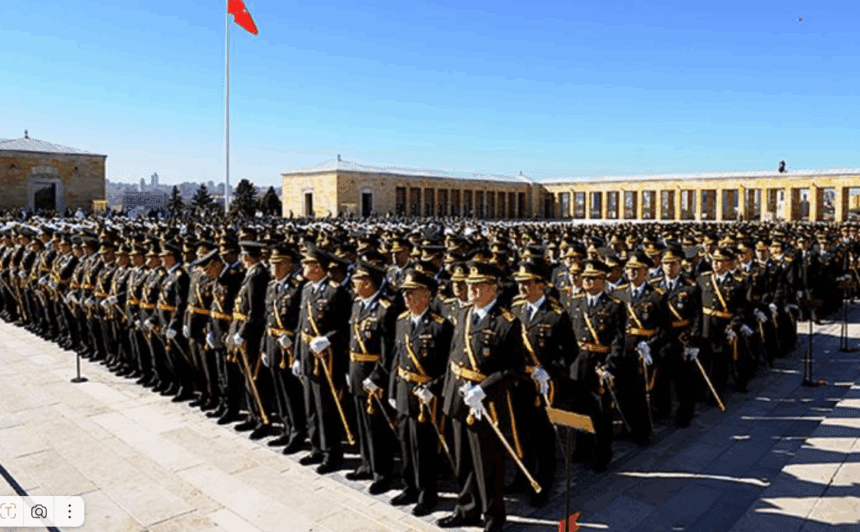President Recep Tayyip Erdoğan is pushing for expansive new powers over the Turkish Armed Forces (TSK) through a draft bill that would grant him direct authority to promote and dismiss military officers—bypassing traditional oversight mechanisms that have governed the armed forces for decades.
The proposal, introduced last Friday as part of an omnibus bill by lawmakers from Erdoğan’s ruling Justice and Development Party (AKP), would allow the president to expel officers between the ranks of lieutenant and colonel without the approval of the High Disciplinary Board, a key institution in military governance. It would also authorize Erdoğan to unilaterally adjust promotion timelines—accelerating, delaying, or halting career progressions at his discretion.
The government defends the legislation as a necessary reform to ensure swift and decisive disciplinary action. The text of the bill claims such authority is required to respond effectively to conduct that may “undermine the operational effectiveness of the TSK.”
However, critics warn the changes represent a dangerous concentration of power, undermining meritocracy and opening the door to politicization within the ranks of the military. If enacted, the legislation would mark one of the most significant shifts in Turkish civil-military relations since the founding of the republic.
“Assigning such authority to a single individual without judicial or institutional checks is incompatible with both democratic norms and the tradition of impartial professionalism that the military has upheld for generations,” said retired Rear Adm. Yankı Bağcıoğlu, deputy chair of the main opposition Republican People’s Party (CHP).
Turan Çömez, deputy group chairman of the nationalist İYİ (Good) Party, voiced similar concerns, stating: “From now on, promotions, retirements, and dismissals won’t be governed by the rule of law or internal procedure. They’ll be decided by presidential decree. This is a clear move toward autocracy.”
Echoes of Emergency Rule
The proposed law revives a controversial debate that has simmered since the 2016 coup attempt. In the aftermath of the failed putsch, Erdoğan gained temporary authority to dismiss military personnel by emergency decree. That power was later struck down by Turkey’s Constitutional Court in 2023, which ruled that such authority could not constitutionally be vested in a single person.
Between 2016 and 2022, over 24,700 individuals were expelled from the military over alleged ties to the faith-based Gülen movement, which Ankara blames for orchestrating the coup. The movement denies involvement and has condemned the crackdown as politically motivated.
Analysts say Erdoğan is now seeking to restore—through legislation—powers that were previously exercised under a state of emergency.
“This proposal subverts discipline itself by removing legal protections for those unjustly targeted,” said Bağcıoğlu. “It is not reform—it is regression.”
Political Loyalty Over Professionalism?
Supporters of the bill argue that centralizing disciplinary authority in the presidency is a safeguard against ideological divisions within the military. Pro-government media have framed the move as a corrective to alleged past abuses by secularist factions, particularly during the 1990s, when conservative officers were reportedly sidelined by a Kemalist officer class.
Yet critics view the bill as part of Erdoğan’s broader effort to reshape state institutions—military, judiciary, and bureaucracy alike—along partisan lines.
Concerns have been amplified by recent dismissals of officers for political expression. Earlier this year, five lieutenants and three officers were expelled from the TSK after participating in an unsanctioned graduation ceremony where they chanted a secularist slogan honoring Mustafa Kemal Atatürk, the founder of the Turkish Republic. The Ministry of Defense said the action violated disciplinary codes, but opposition figures condemned the move as symptomatic of a broader authoritarian turn.
The dismissed officers are currently appealing their cases in an administrative court. Legal experts warn that the new legislation, if enacted, would make future dismissals harder to challenge and further erode due process in the armed forces.



